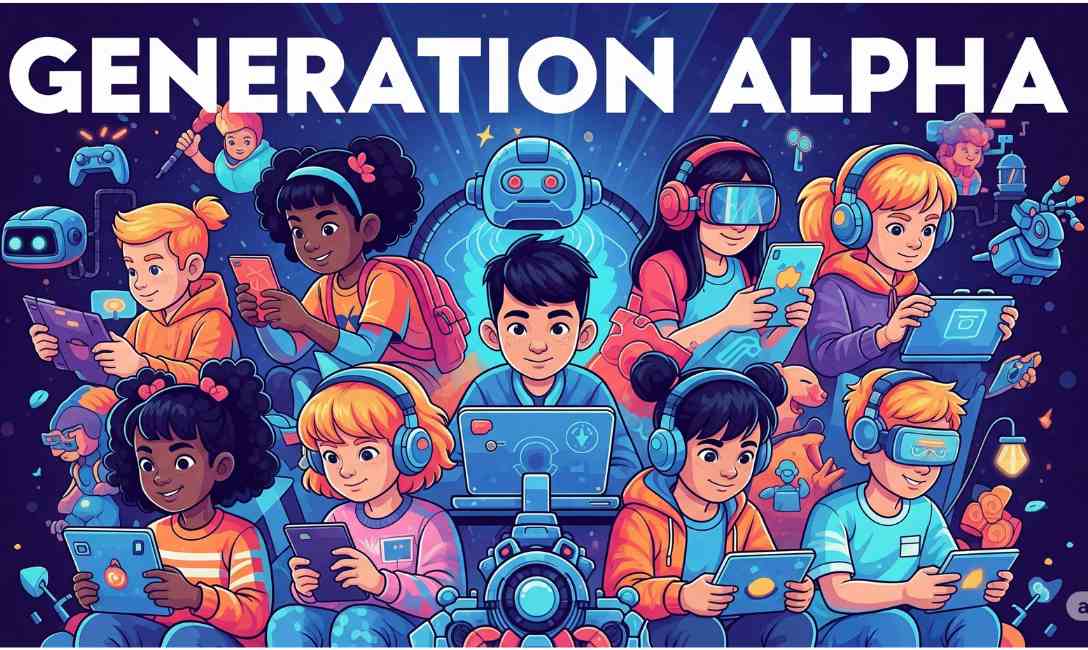The world of relationships is evolving fast, and with Generation Z leading the charge, a whole new lexicon has emerged. Whether you’re a millennial trying to keep up or a curious Gen Xer, understanding Gen Z relationship terms is crucial for navigating modern dating culture.
From “situationships” to “ghosting,” Gen Z isn’t just changing how we date—they’re changing how we talk about love, commitment, and everything in between. In this guide, we’ll decode the top Gen Z dating slang and explain what it all means.
What Is Gen Z Meaning?
Before diving into Gen Z relationship terms, let’s define who Gen Z actually is.
Gen Z meaning refers to the generation born approximately between 1997 and 2012. Also known as “Zoomers,” they are the first generation to grow up fully immersed in the digital world—smartphones, social media, and on-demand everything.
They’re tech-savvy, progressive, emotionally aware, and more open-minded when it comes to love and identity. These values are reflected directly in their dating behavior and the unique terminology they use.
Why Understanding Gen Z Relationship Terms Matters
Modern relationships are complex, and Gen Z has crafted its own vocabulary to describe the nuances of romantic interaction. For educators, marketers, app developers, and even parents, staying up to date with Gen Z lingo is vital.
Moreover, if you’re dating or interacting with someone from Gen Z, understanding their language can avoid miscommunication and promote better emotional connection.
Top Gen Z Relationship Terms You Need to Know
Let’s break down the most relevant Gen Z relationship terms you’ll encounter in 2025 and beyond:
1. Situationship
A situationship is more than a fling but less than a relationship. It’s when two people are involved emotionally and/or physically without labeling it officially.
Example:
“We hang out all the time, but we’re not exclusive. It’s a situationship.”
Why It Matters:
Situationships reflect Gen Z’s flexible approach to commitment and emotional boundaries.
2. Ghosting
Ghosting happens when someone suddenly cuts off all communication without explanation.
Example:
“He didn’t reply for a week and just vanished—he ghosted me.”
Gen Z’s Take:
While not new, ghosting is now so common it has become normalized in Gen Z dating culture.
3. Breadcrumbing
This is when someone gives just enough attention—likes, messages, flirty comments—to keep someone interested, without any real intention of committing.
Example:
“He keeps liking my stories but never makes plans—classic breadcrumbing.”
4. Benching
Benching is keeping someone on the sidelines—occasionally texting or meeting—but never letting it develop into something deeper.
It’s like emotional stringing along, often used to keep options open.
5. Cuffing Season
Cuffing season refers to the colder months when singles seek short-term relationships to “cuff” themselves to someone for comfort during winter.
Subtle Gen Z Logic:
Being in a relationship seems cozier during the holidays and cold nights, but it usually fades by spring.
6. Thirst Trap
A thirst trap is a seductive photo or post shared to attract attention or flirtation—often used to revive old sparks or test interest.
Example:
“She posted that bikini pic as a thirst trap for her ex.”
7. Hard Launch vs. Soft Launch
Soft launch = Posting subtle hints of a new partner (like a dinner pic with no face).
Hard launch = Publicly declaring the relationship with full couple photos or status updates.
Trend Insight:
Gen Z uses social media strategically in relationships, showing varying levels of public exposure.
8. Dry Texting
This happens when someone gives dull, one-word replies with no emotional engagement.
Red Flag for Gen Z:
Dry texting is often interpreted as disinterest or lack of effort.
9. Delulu (Delusional)
Delulu is short for delusional—used when someone imagines a romantic connection or future without solid evidence.
Example:
“She saw him smile and thinks they’re soulmates—she’s being delulu.”
10. Rizz
Rizz is short for charisma, especially in a romantic or flirtatious context.
Example:
“He’s got major rizz—everyone falls for him.”
11. Green Flags & Red Flags
Gen Z loves discussing green flags (positive signs) and red flags (dealbreakers) in dating.
- Green flag: Good communication, consistency, emotional intelligence.
- Red flag: Love bombing, controlling behavior, emotional unavailability.
12. Love Bombing
Love bombing is when someone overwhelms you with affection and attention early in the relationship to manipulate or control you later.
13. Orbiting
Orbiting is when someone ghosts you but still watches your stories, likes your posts, or checks your updates.
It’s like ghosting’s creepier cousin.
14. Gaslighting
Though it predates Gen Z, gaslighting is widely used by them to describe emotional manipulation where someone makes you doubt your reality.
Awareness is Key:
Gen Z relationships emphasize mental health, and spotting gaslighting is part of that.
15. Catch Flights, Not Feelings
This phrase reflects Gen Z’s independent spirit—prioritizing personal freedom and experiences over emotional attachment.
Used As:
A caption, a mantra, or a humorous way to say “I’m not looking for anything serious.”
How Technology Shapes Gen Z Dating Culture
Technology plays a massive role in how Gen Z dates. Here’s how:
- Dating apps: Bumble, Tinder, and Hinge are standard.
- DM sliding: Instagram and Snapchat are popular platforms for flirting.
- Video calling: FaceTime is often used instead of traditional dates early on.
- Social media vetting: Checking someone’s feed is like a background check.
Their tech fluency allows for flexible relationships but also complicates boundaries and commitment.
Gen Z’s Unique Take on Love and Commitment
Unlike previous generations, Gen Z values emotional honesty and fluidity in dating. Labels are less important than emotional safety and mutual respect.
Many Gen Z individuals:
- Support polyamory or open relationships.
- Prefer self-discovery before commitment.
- Avoid traditional timelines like “date-marriage-kids.”
- Are more open to cross-cultural and LGBTQ+ relationships.
They’re redefining what it means to love and be loved.
The Language of Gen Z and Mental Health
One key reason Gen Z relationship terms are so detailed is their emphasis on mental health. They use language to define boundaries, express needs, and avoid toxicity.
Words like gaslighting, breadcrumbing, and love bombing empower Gen Z to recognize emotional abuse. At the same time, terms like green flags and soft launching offer tools to navigate relationships in healthier ways.
Final Thoughts: Why You Should Learn Gen Z Relationship Terms
Understanding Gen Z relationship terms isn’t just a fun linguistic adventure—it’s crucial for connecting with the next generation. Whether you’re a parent, teacher, content creator, or someone dating a Gen Z partner, this knowledge helps build empathy and communication.
As Gen Z meaning continues to evolve in culture, so too will their language. By keeping up, we open doors to better conversations, stronger connections, and a deeper understanding of modern relationships.
Keywords Recap:
- Gen Z relationship terms
- Gen Z meaning
- Genz meaning
- Gen Z dating
- Gen Z love
- Relationship terms Gen Z
- Gen Z lingo
- Gen Z relationship dynamics
- modern dating terms
- digital dating culture
FAQs About Gen Z Relationship Terms
Q1. What is Gen Z’s dating style?
Gen Z prefers authentic, emotionally intelligent relationships. They often avoid traditional labels and prioritize mental health and open communication.
Q2. Are situationships common among Gen Z?
Yes, they are. Many Gen Z individuals find comfort in the fluidity of situationships, especially when focusing on career or self-growth.
Q3. How do Gen Z couples communicate?
Through texting, social media DMs, video calls, and memes. Communication is fast-paced and often indirect.
Q4. What is the meaning of “rizz” in Gen Z slang?
Rizz is short for charisma, especially in a flirtatious or dating context. Someone with “rizz” has strong attraction energy.




